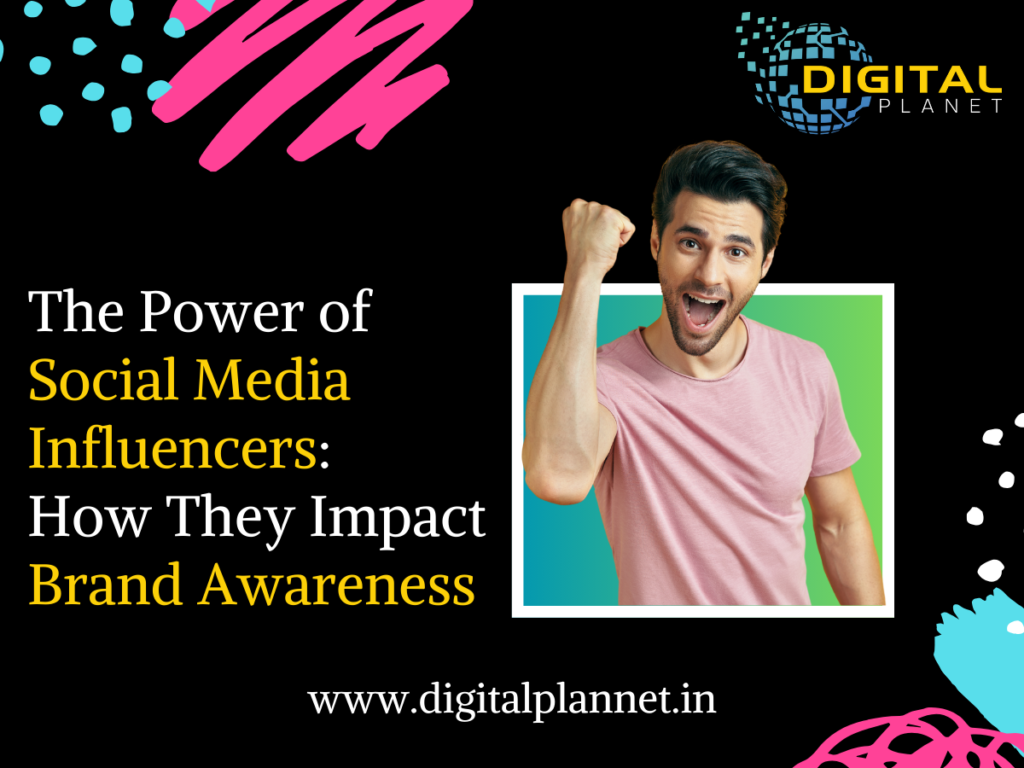The Power of Social Media Influencers: How They Impact Brand Awareness

Introduction:
In the ever-evolving landscape of digital marketing, social media influencers have emerged as a formidable force in shaping brand awareness. These individuals, who have cultivated significant followings on platforms such as Instagram, YouTube, TikTok, and Twitter, possess the unique ability to engage and influence their audiences in ways that traditional advertising cannot. This article delves into the profound impact of social media influencers on brand awareness, exploring the mechanisms through which they operate and the tangible benefits they bring to businesses.
The Rise of Social Media Influencers
A New Era of Marketing:
The advent of social media has revolutionized the way brands communicate with their target audiences. Traditional advertising methods, while still relevant, have taken a back seat to more interactive and personalized forms of marketing. Social media influencers are at the forefront of this shift, leveraging their platforms to create authentic connections with their followers. Their rise can be attributed to the growing consumer preference for genuine, relatable content over polished, corporate messaging.
Building Trust and Credibility:
One of the key reasons why influencers are so effective in enhancing brand awareness is the trust and credibility they have built with their audiences. Unlike celebrities, influencers are often seen as more approachable and relatable. Their followers trust their opinions and recommendations, viewing them as authentic endorsements rather than paid advertisements. This trust translates into higher engagement rates and a greater likelihood of followers taking action based on the influencer’s content.
The Mechanisms of Influence
Content Creation and Engagement:
Influencers excel at creating engaging content that resonates with their audiences. Whether it’s through visually appealing photos, compelling videos, or insightful blog posts, influencers know how to capture attention and foster interaction. This content often features brands naturally and seamlessly, making the promotions feel less intrusive and more like genuine recommendations.
Leveraging Social Proof:
Social proof is a powerful psychological phenomenon that influencers harness to amplify their impact. When followers see an influencer using and endorsing a product, they are more likely to perceive it as valuable and trustworthy. This is especially true when the influencer provides detailed reviews, tutorials, or personal anecdotes that highlight the product’s benefits. The sense of community and shared experience further reinforces the influencer’s message.
The Benefits of Influencer Marketing for Brands
Increased Reach and Visibility:
One of the most significant advantages of partnering with social media influencers is the expanded reach and visibility they offer. Influencers have cultivated dedicated followings that can range from thousands to millions of people. By tapping into these audiences, brands can expose their products and services to a wider demographic, many of whom may have been previously unaware of the brand’s existence.
Targeted Marketing:
Influencers often cater to specific niches, allowing brands to target their marketing efforts more precisely. Whether it’s fashion, fitness, beauty, or technology, there are influencers who specialize in virtually every industry. This niche focus ensures that the brand’s message reaches an audience that is already interested in and engaged with the relevant topic, increasing the likelihood of conversion.
Enhanced Engagement:
Engagement metrics such as likes, comments, and shares are crucial indicators of a brand’s online presence and popularity. Influencer collaborations typically result in higher engagement rates compared to traditional advertising. Followers are more inclined to interact with content that features their favorite influencers, leading to increased brand interaction and a stronger online presence.
Authentic Storytelling:
Influencers excel at storytelling, a key component of effective marketing. They share personal experiences and narratives that resonate with their followers, weaving the brand’s message into their own stories. This approach not only makes the content more relatable but also helps in building an emotional connection between the brand and the audience.
Case Studies: Success Stories of Influencer Marketing
Fashion Industry: A Case Study of Revolve:
Revolve, an online fashion retailer, has successfully leveraged influencer marketing to become a leading brand in the industry. By partnering with a diverse range of influencers, from micro-influencers to mega-influencers, Revolve has managed to create a strong online presence. These influencers showcase Revolve’s clothing in their everyday lives, providing followers with styling inspiration and driving traffic to the retailer’s website.
Beauty Industry: Glossier’s Influencer Strategy:
Glossier, a beauty brand, has built its entire marketing strategy around influencer partnerships and user-generated content. By focusing on real people and authentic reviews, Glossier has cultivated a loyal customer base. Influencers play a crucial role in this strategy, sharing their honest experiences with Glossier products and encouraging their followers to do the same.
Fitness Industry: Nike’s Collaboration with Fitness Influencers:
Nike has effectively used influencer marketing to promote its fitness products and campaigns. By collaborating with fitness influencers and athletes, Nike has been able to showcase its products in action and inspire its audience to adopt a more active lifestyle. These collaborations often feature workout routines, fitness challenges, and motivational content, all of which align with Nike’s brand values.
Measuring the Impact of Influencer Marketing
Key Performance Indicators (KPIs):
To gauge the success of influencer marketing campaigns, brands must track various key performance indicators (KPIs). These include metrics such as engagement rate, reach, impressions, website traffic, and conversion rates. By analyzing these KPIs, brands can assess the effectiveness of their influencer partnerships and make data-driven decisions for future campaigns.
Return on Investment (ROI):
Calculating the return on investment (ROI) is essential for determining the financial impact of influencer marketing. This involves comparing the cost of the influencer campaign to the revenue generated as a direct result of the campaign. Brands can use unique discount codes, affiliate links, and trackable URLs to attribute sales and conversions to specific influencers, providing a clear picture of the campaign’s ROI.
Challenges and Considerations
Finding the Right Influencer:
One of the main challenges in influencer marketing is identifying the right influencer to partner with. Brands must ensure that the influencer’s audience aligns with their target demographic and that the influencer’s values resonate with the brand’s message. This requires thorough research and due diligence to avoid potential mismatches and ensure a successful collaboration.
Maintaining Authenticity:
As influencer marketing becomes more prevalent, maintaining authenticity is crucial. Audiences are becoming increasingly savvy and can quickly detect insincere or overly commercial content. Brands and social media influencers must work together to create genuine, value-driven content that stays true to the influencer’s voice and style.
Navigating Regulations:
The rise of influencer marketing has led to increased scrutiny and regulation. Brands and social media influencers must adhere to advertising guidelines and disclose sponsored content transparently. Failure to do so can result in legal repercussions and damage to both the brand’s and the influencer’s reputation.
Conclusion:
The power of social media influencers in driving brand awareness cannot be overstated. Their ability to create authentic connections, engage audiences, and amplify brand messages makes them invaluable assets in the modern marketing landscape. By strategically partnering with influencers, brands can enhance their visibility, reach targeted demographics, and foster meaningful engagement with their audience. As influencer marketing continues to evolve, its impact on brand awareness is set to grow even further, solidifying its place as a cornerstone of digital marketing strategies.
Related Posts
- Top Health and Wellness Influencers in India 2026
- Top Gaming YouTubers in India (2026) – Most Popular Indian Gaming Creators & Streamers List
- Online Marketing That Builds Brands People Remember (Not Just Traffic)
- Digital Planet – The Best Digital Marketing Agency in India 2026
- How to Get Leads from LinkedIn in 2026

